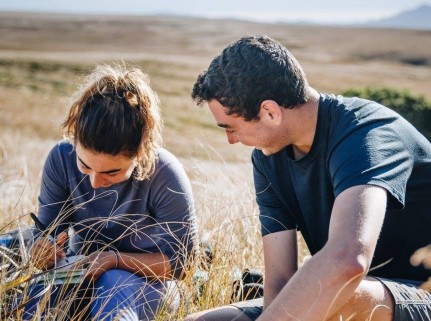Our next journey was to Wat Suan Dok, a Buddhist meditation retreat where curious people from all over the world congregate to immerse themselves in the life of a Thai monk. As our individual sense of style and colorful elephant pants were replaced with blank white “mindfulness” t-shirts and very baggy meditation pants, the theme of unification and the sacrifice of Westernized culture became brutally evident.
Prior to our arrival we were able to attend a “monk chat” and we discussed themes of karma, happiness, reincarnation, and gained a more in depth understanding of the basis of Buddhist philosophy. One prominent theme in Buddhism is the concept of karma - an "almost" monetary system that enforces good behavior with the prospect of reward in your next life and discourages selfishness, cruelty, crime, etc. I proposed a paradox to Pra K.K. (Pra meaning “monk” in Thai) that karma in a way is flawed in terms of intent- meaning that if someone's intent in doing a good deed is only to gain positive karma, then that compromises the alleged selflessness associated with chivalry and kindness.
He responded in a very cordial manner, explaining that all philosophies are confusing and somewhat flawed and that he too himself struggles to understand karma. Finally we agreed that karma is beneficial by simply encouraging kindness, regardless of intent, but gaining or losing karma ultimately does depend on intention and is unique to each decision we make.
Our first duty at the retreat was to learn and practice meditation in 4 different forms; sitting, standing, walking, and our collective favorite, laying meditation (trying not to fall asleep). After not eating for hours our stomachs were empty and our minds were overflowing with new information, so sitting completely still and trying to focus our scattered minds was extremely difficult for all of us. This juxtaposition between the chaos of our normal hectic Western lifestyles and the stillness and beauty of the quiet room impacted all of us, and for me it became the illuminating paragon for Eastern culture and spiritualism in all of its rawness.
Before filling our stomachs with pad thai, rice, and green curry, we were instructed to remain silent and were meant to chant and pray to Buddha, which a lot of people found very difficult and frustrating, but it furthered our understanding of Buddhist philosophy and the contrast between our normal family dinners at home. I found it very hard to stay quiet and serious during the meal, as we were meant to almost stay in a meditative state in order to savor and appreciate what was made for us, because our group has developed a comfortable habit of gregariousness and rambunctiousness to let off steam at the end of the day.
The rest of the night was also very difficult for most of us after a long, exhausting day, and our patience was tested by re-learning how to walk. Pra K.K. instructed us on walking meditation with a six step guide, repeating “heel up, lift, moving, touching, etc.” for over an hour, which, combined with the collectivism of our white robes and intensely focused minds made for an interesting picture (reminiscent of a science-fiction movie where it takes 20 minutes to walk five steps). Thankfully, we were motivated by the prospect of coffee and cookies (although the cookies never came) and we all went to bed early with the anticipation of a 5 AM wake up call.
Opening up my crusty eyes while sitting on the ground in front of a giant golden Buddha created a timeless and idyllic portrait of a sunrise covered Thai sky. This in general calmed our psyches and the rest of the morning was very peaceful and reflective, fostering a very meditative and beautifully sedated environment. Later we were given the opportunity for personal meditation practice, free to use whichever method we wished, and most of us reverted back to our sleepy selves and reclined on the floor.
Upon leaving two of the hardest days my mind has been through, we chanted and bowed down to Buddha, which encapsulated the slow-paced, heartbeat-paced philosophy that we now understood and respected. Although we were only leaving to return to the urban Chiang-Mai, I felt a sense of transition in our perception of time, immediately excited at the prospect of exploring the city for one last night. When we all return to our fast-paced lives in America, Canada, and England, I hope we look back to this experience and contemplate the necessity of a fast-paced lifestyle. We have learned how to live in the moment and realized that if we don't pause and look around, we can't “live in our greatest memories."
Evan Stevens
Author
Evan Stevens
Posted

Leave a Comment
Your email address will not be published. Required fields are marked *